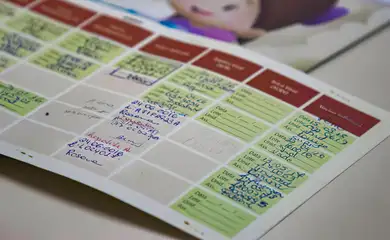Unicef Seal: 923 Brazilian cities receive certification

On Wednesday (Nov. 6), the United Nations Children's Fund (UNICEF) in Brazil announced that 923 cities from the North and Northeast regions, as well as northern areas of Minas Gerais and Mato Grosso, have been recognized for significantly improving their municipal public policies for children and adolescents between 2021 and 2024. These cities, home to over 8 million young people under the age of 19, achieved progress surpassing the national average in several key areas. As a result of these efforts, they have been awarded the prestigious UNICEF Seal for their positive impact on children and adolescents.

The Unicef Seal recognizes and encourages tangible progress in promoting, protecting, and ensuring the rights of children and adolescents in the municipalities under its monitoring.
"Unicef celebrates the remarkable progress of cities in vulnerable regions that have not only caught up but also surpassed expectations. With Unicef's support, these municipalities have enhanced the efficiency of their management in key areas related to children's and adolescents' rights, fulfilling their obligations more effectively," says Youssouf Abdel-Jelil, Unicef's representative in Brazil.
To achieve these impressive results, the awarded cities committed to prioritizing early childhood and adolescence by enhancing education—from preschool to preparing young people for the workforce. They also invested in the physical and mental health of children and adolescents, promoted hygiene practices and access to clean water, protected youth from violence, and ensured social protection for vulnerable families, particularly those from traditional communities and peoples.
After four years, these 923 cities have surpassed the national average in several key areas, notably in immunization, education, and protection against violence.
"We're not talking about the cities with the highest indicators, but rather those that have shown the most significant improvement since 2021," said the UNICEF representative in Brazil.
Youssouf Abdel-Jelil emphasized that UNICEF’s work in these Brazilian regions represents a large-scale effort to secure the fundamental rights of thousands of children. “It’s crucial that these cities continue to progress, ensuring that the children and adolescents living there can have bright futures, with access to opportunities, protection, and improved living conditions,” Abdel-Jelil noted.
Immunized children
Among the positive outcomes, vaccination coverage saw the most significant improvement in the 923 municipalities certified with the Unicef Seal, surpassing the national average. From 2020 to 2023, Brazil's overall coverage for the second dose of the MMR vaccine (measles, mumps, and rubella) increased by 2.6 percent, rising from 64.27 percent to 65.91 percent. In contrast, the certified municipalities achieved a 17.7 percent increase, going from 56.4 percent to 66.4 percent.
"We've seen remarkable efforts in the municipalities that have now received the Unicef Seal, extending beyond the basic health units to reach schools, Social Assistance Reference Centers, and other public spaces and facilities. The data show that we still have a long way to go to achieve the 95 percent coverage target set by the World Health Organization (WHO), but we're on the right track," says Luciana Phebo, head of health at UNICEF Brazil.
Children in school
School dropout rates have decreased more significantly in municipalities certified with the Unicef Seal compared to the national average. Between 2019 and 2023, Brazil's overall dropout rate declined by 38 percent, from 1.3 percent to 0.8 percent. In the 923 municipalities holding the certification, the reduction was even greater, at 47 percent, dropping from 1.7 percent to 0.9 percent.
“There is a normalization of school failure in Brazil, leading society to accept that certain students are destined to drop out, enter the workforce or engage in crime under precarious conditions, remain in poverty, and become more vulnerable to various forms of violence, including homicide. When we observe cities reducing school dropout rates, we are witnessing a powerful achievement—one that ensures an increasing number of girls and boys can follow successful paths, with their rights guaranteed,” says Mônica Dias Pinto, Head of Education at Unicef Brazil.
Protecting children
Adherence to and proper use of the Information System for Children and Adolescents (Sipia), available nationwide, was one of the key actions implemented by municipalities now receiving the Unicef Seal. In these certified cities, the number of records of violence against children and adolescents reported on Sipia surged more than 60-fold, rising from 1,775 in 2020 to 109,947 in 2023. This increase far outpaces the national average. Over the same period, nationwide records grew approximately fivefold, from 118,995 to 578,859.
“Making violence visible is the first step toward protecting children and adolescents. The progress in case registration shows that thousands of girls and boys were suffering from various forms of violence without the authorities being aware or able to intervene. By registering these cases, a comprehensive protection network can be activated,” explains Vanessa Wirth, acting head of child protection at Unicef Brazil.





